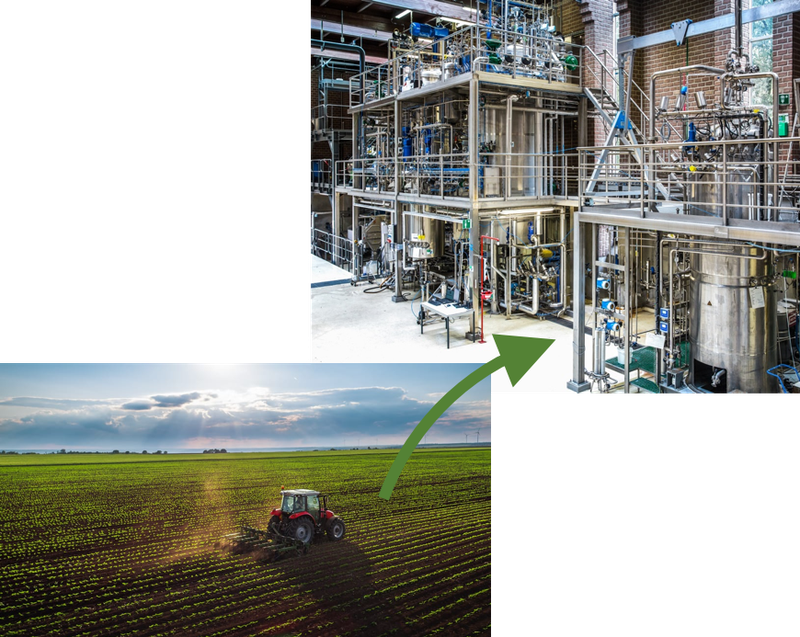Agriculture: the foundation of fermentation

Fermentation is a manufacturing process that uses microorganisms to produce countless products that support our lives ranging from food to pharmaceuticals to energy. The growth of microorganisms requires nutrients and carbon sources. These are provided by agriculture where specific crops are grown and processed to provide food for the microorganisms. For example, yogurt is made from milk by the bacteria Lactobacillus bulgaricus and Streptococcus thermophilus. Wine and beer are made from grapes and barley, respectively, by the yeast Saccharomyces cerevisiae. This yeast is also used to manufacture ethanol using substrates like sugar (from sugar cane or sugar beet) and starches (from corn, wheat or potatoes). Cellulosic alcohol production uses agricultural residues like switchgrass or other plant material. The pharmaceutical industry uses many microorganisms (bacteria E. coli and, again, the yeast Saccharomyces cerevisiae as well as Pichia pastoris) and even mammalian cells (like Chinese hamster ovary cells) to produce vaccines, antibodies, hormones, drug compounds, and other therapeutics. The manufacturing of these products would not be possible without the agriculture that sustains life.
Figures: https://www.pymnts.com/news/b2b-payments/2019/farm-big-bank-lending/
http://www.bbeu.org/pilotplant/technologies/fermentation/

